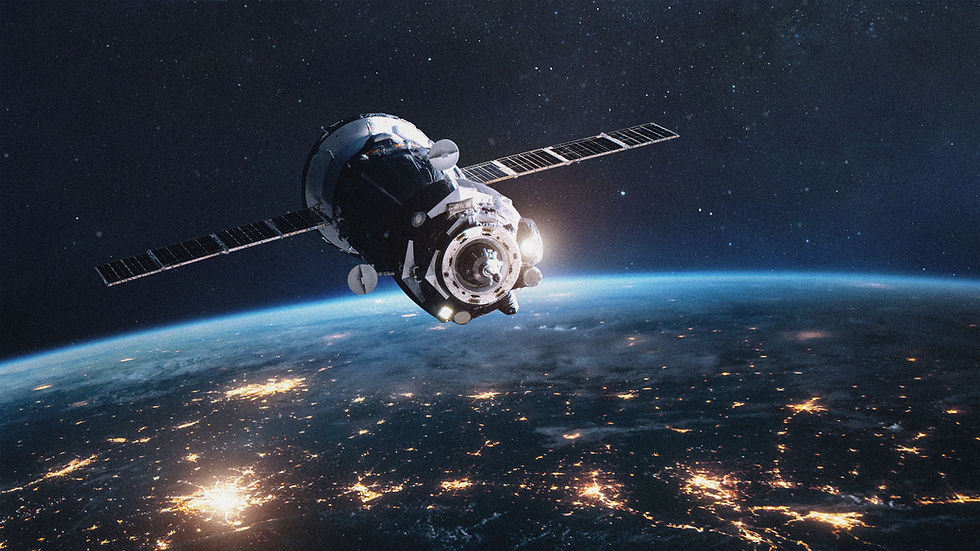String Theory: Contemporary Studies Bridging Music and Space
- Amanda Grodman

- Apr 19, 2023
- 3 min read
Updated: Jun 2, 2023
We on Earth may consider music a common pleasure, not truly pondering music’s connection to STEM, or specifically, aerospace. Recent studies have aimed to disprove such misconceptions, showing a direct relationship between music and medicine, physics, chemistry, and other STEM components through many facets. Although a growing number of students are entering the STEM pipeline, enforcing components of the arts is equally as important in ensuring future generations can tackle problems in creative manners. Better yet, simplifying the fundamentals of complex systems, including space, for younger students through novel, artistic methods further promotes scientific enthusiasm from day one. From psychological benefits to quantum physics, music is not only a uniting force in a social manner, but evidently, in a scientific one as well.

Besides various concerns regarding adamant exercise, proper nutrition, and monitoring bodily changes, astronauts may often feel homesick or disconnected from Earth, which can culminate in emotional stress. Ultimately, astronauts are crucial in making strides in space, whether it be in science or technology, and ensuring that these individuals are able to seamlessly return to Earth is critical. To combat these concerns, astronauts on the International Space Station (ISS) have sought musical outlets by bringing instruments with them on longer journeys–easing stress, acting as a keepsake, and bringing the astronauts together for a lively purpose. Since scientists have been researching methods of stress relief for astronauts for several years, coupled with the implementation of new diets or hobbies, music is certainly a simple, positive outlet and easily implementable strategy to prevent detrimental anxiety. Additional studies have proposed music’s benefit in easing space-bound stress–testing whether listening to music while being in low-gravity conditions acts as a positive distraction. The experiment's results could be insightful in tackling the hearth of anxiety in space, with the ultimate goal of broadening the horizon of space-goers. In the future, experiments may attempt to quantify the release of inflammatory cytokines when listening to music or not, and if the ideal genre of space stress relief could be pinpointed.

On a larger yet similar scale, other researchers have proposed that the seemingly lofty universe can be viewed similarly to a music scale, with each step representing galactic principles or planets. This follows historical ideas which suggest that music unites those on Earth, while also acting as a worldly outlet (similar to what astronauts may look for when thinking of home). In addition, this principle can be viewed from a physical science perspective, with infinite matter being composed of vibrating strings that allow for universal harmony, similar to the concept of string instruments creating enjoyable melodies in variable arrangements. While this theory and others have yet to be mathematically confirmed, these propositions are certainly viable examples of how space unites even the most seemingly dichotomous fields–and new academic techniques have aimed to “bridge” this “octave” as well.

In this episode of “Let’s Go to Space: BLUESKY Learning,” Episode 104: Music and the STEM Pipeline with Laurie Orth, we’re joined with Laurie Orth, a music teacher who combines her passions of music and space exploration into teaching young students. Ms. Orth published a space-themed workbook entitled “Rocket Recorder” in 2019, in addition to teaching students in different environments and being a professional singer outside of the classroom. In addition, she volunteers with the Girl Scouts of Historic Georgia, promotes professional development between STEM and music educators, and is the Chapter President for the Savannah Air & Space Forces Association. Similar to the studies presented in this blog, Ms. Orth truly captures the convergence of space and music, and her knowledge in both STEM fields and their pipeline is certainly impressive in fostering a love of space and song in rising generations of students. Learn more about Laurie Orth or visit our other weekly podcasts to hear from other speakers, by clicking the link above. Also make sure to check out our website to learn more about becoming a member of the Aerospace and Innovation Academy, where you can join us in our quest to go to space.




Comments